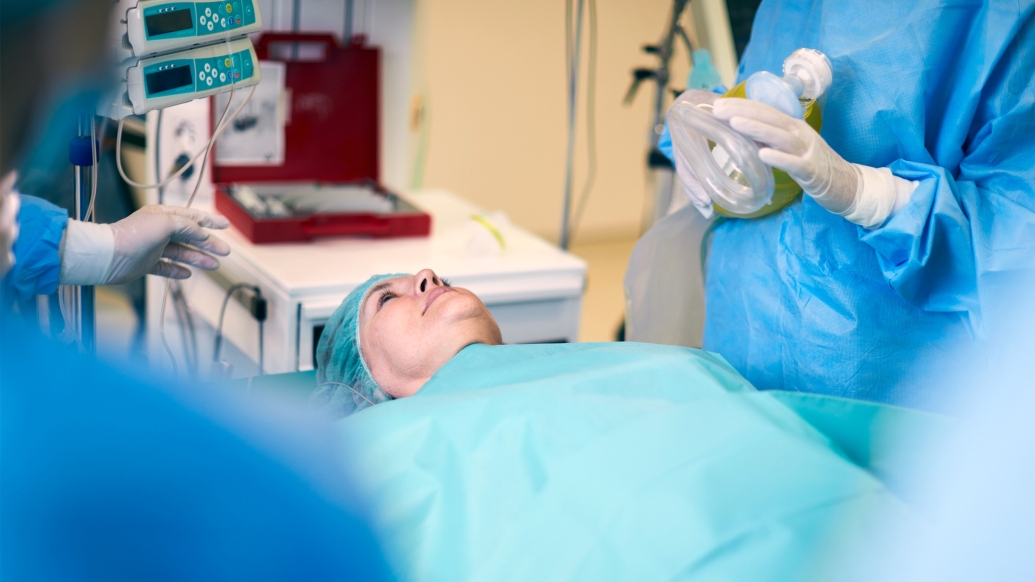Women undergoing heart surgery received secondary procedures less often, despite guideline recommendations
5:00 AM
Author |

When operating on the heart, surgeons may find another issue in the patient. Depending on what they see, the surgical team may address on the secondary condition during the same operation.
These are sometimes called concomitant procedures.
However, two studies led by Michigan Medicine find that female patients who undergo heart surgery are less likely to have secondary ailments corrected during a procedure — despite guidelines that indicate they should.
“Across the spectrum of cardiovascular care, from medical management to transcatheter and surgical procedures, there is growing evidence that women are undertreated,” said Catherine M. Wagner, M.D., M.Sc., first author of both papers and an integrated thoracic surgery resident at University of Michigan Health.
“Our work highlights opportunities to improve guideline recommended care in a way that reduces existing disparities.”
The first study examined over 5,000 patients with atrial fibrillation, a heart rhythm irregularity that can cause stroke if not treated, who underwent heart bypass or aortic valve replacement surgery at nearly three dozen Michigan hospitals between 2014 and 2022.
The data was gathered through the Michigan Society of Thoracic and Cardiovascular Surgeons Quality Collaborative.
While guidelines recommend repair of atrial fibrillation during cardiac surgery, female patients with preoperative Afib were 26% less likely to have it corrected during the procedure after adjusting for factors such as demographics and comorbidities.
In total, 67% of male patients received the simultaneous Afib procedure compared to 59% of females, according to results published in the Journal of Cardiovascular and Thoracic Surgery.
Atrial fibrillation is among the most common comorbidities seen among cardiac surgery patients.
Women are more likely to experience Afib complications, including stroke.
“We must investigate the barriers to female patients receiving this recommended treatment,” said senior author Robert B. Hawkins, M.D., M.Sc., cardiac surgeon at the U-M Health Frankel Cardiovascular Center and assistant professor of cardiac surgery at U-M Medical School.
“Prior work has found that additional Afib procedures, such as left atrial appendage management, do not increase morbidity and mortality during cardiac surgery. The disparity we observed may be related to overall low rates of adoption of such Afib procedures by doctors and hospitals, as well as surgeon perception of a higher risk existing among women.”
In the second study, a Wagner-led team eyed nearly 400 people who received mitral valve surgery between 2014 and 2023.
Our work highlights an opportunity to improve care for women undergoing heart surgery and maximize the benefit patients receive when undergoing these high-risk surgeries,” said Catherine M. Wagner, M.D.
Those patients also had moderate to severe leaking, or regurgitation, from their tricuspid valve at the time of surgery.
Results published in Annals of Thoracic Surgery reveal that women were 52% less likely than males to receive tricuspid valve repair during their mitral surgery.
Three-quarters of the male patients had the repair done compared to 57% of female patients.
Using a risk model, researchers also found that the female patients were more likely to have severe tricuspid regurgitation or to require a valve-related reoperation up to four years later.
“Taken together, these data suggest that undertreatment of women with moderate or worse tricuspid regurgitation who are undergoing degenerative mitral surgery may be contributing to their worse outcomes,” said Steven F. Bolling, M.D., senior author and professor of cardiac surgery at University of Michigan Medical School.
SEE ALSO: Women stroke survivors believe they will receive worse care in the emergency room
“This undertreatment occurred despite the fact that additional tricuspid repair is a class I recommendation during left sided valve surgery. We must advance the equitable use of guideline recommended treatment for this procedure.”
Researchers suspect that the perception of higher risk among women may have influenced the lower numbers for secondary procedures they received. However, female patients in this study had a lower predicted risk of death compared to men.
Simultaneous procedures for atrial fibrillation and tricuspid regurgitation could serve as future quality measures for insurers and national cardiac surgical societies, Wagner says.
“Cardiac surgery has pioneered the measurement and delivery of high-quality care. I think the next step is ensuring that such care is equitable. Our work highlights an opportunity to improve care for women undergoing heart surgery and maximize the benefit patients receive when undergoing these high-risk surgeries,” she said.
“Establishment and measurement of quality measures has been shown to increase the adoption of recommended surgical procedures. This type of effort is an important next step to improving care for all.”
View additional authors for the JTCVS study and for the AATS study.
Support for MSTCVS-QC is provided by Blue Cross and Blue Shield of Michigan (BCBSM) and Blue Care Network as part of the BCBSM Value Partnerships program. Although BCBSM and MSTCVS-QC work collaboratively, the opinions, beliefs and viewpoints expressed by the author do not necessarily reflect the opinions, beliefs and viewpoints of BCBSM or any of its employees.
Papers cited:
“Evaluation of sex differences in the receipt of concomitant atrial fibrillation procedures during nonmitral cardiac surgery,” Journal of Cardiovascular and Thoracic Surgery. DOI: 10.1016/j.jtcvs.2024.04.011
“Sex-Based Differences in Concomitant Tricuspid Repair During Degenerative Mitral Surgery,” Annals of Thoracic Surgery. DOI: 10.1016/j.athoracsur.2024.03.032
Sign up for Health Lab newsletters today. Get medical tips from top experts and learn about new scientific discoveries every week by subscribing to Health Lab’s two newsletters, Health & Wellness and Research & Innovation.
Sign up for the Health Lab Podcast: Add us on Spotify, Apple Podcasts or wherever you get you listen to your favorite shows.

Explore a variety of health care news & stories by visiting the Health Lab home page for more articles.





